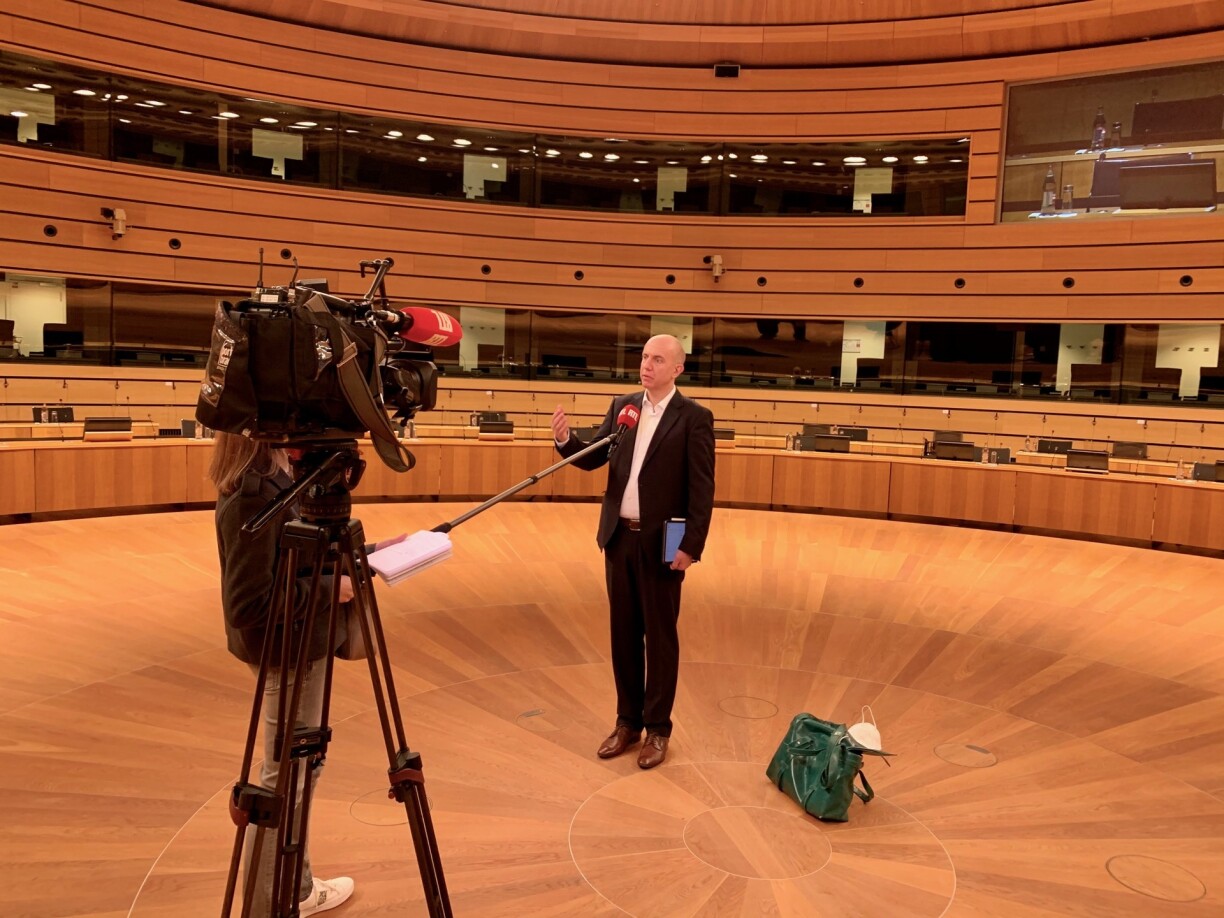
The rate of new infections may have slightly decreased over the past week, but remains stable at an alarming level, the Covid Task Force notes in its most recent report. The scientists further explain that although the government measures seem to bear fruit, they may still prove to be too insignificant to bring about the desired outcome, especially in light of the upcoming festive period.
On average, 678 new daily infections occurred from 5 to 11 November, a decrease in comparison to the 800 daily cases during the previous week. However, it still remains unclear whether or not the Autumn peak has been reached or not, Dr Paul Wilmes from the Covid Task Force explains.
The virus reproduction rate, currently at 0.93, would need to go down to 0.8 to make that assertion, he further notes. At the same time, the average number of daily new infections should not exceed 200 people if the country’s hospitals are to avoid capacity limits at the beginning of the new year.
Video report in Luxembourgish:
The Covid Task Force has doubts over the efficiency of the current public restrictions, explaining that it will be difficult to reach the desired goal with no further measures: “Regarding the data we gathered, we think it is highly unlikely that we flatten the curve in significant manner.”
Nevertheless, a renewed lockdown can still be avoided, Dr Wilmes states. Both the reduction of social contacts and active participation in the large-scale testing procedure may help in that regard.
